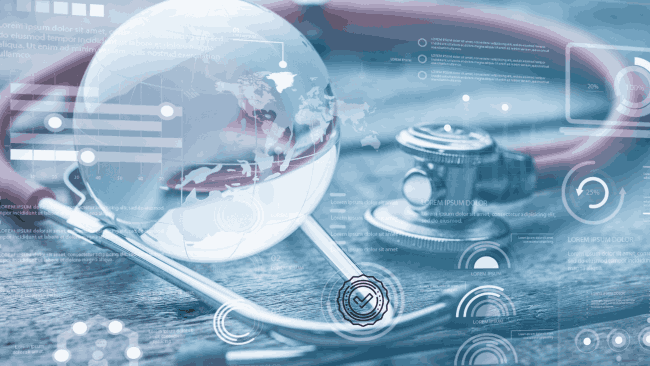Certified Translation Services in Healthcare: Ensuring Accuracy and Compliance in Global Medical Communication
 With more and more countries adopting a wide range of healthcare services for their citizens, clear communication across languages is essential. Whether translated content is required for an informational website to educate the public on a pandemic or for very detailed patient interactions and reports required for patients and providers, certified translation services are crucial in ensuring that important medical information is accurately conveyed.
With more and more countries adopting a wide range of healthcare services for their citizens, clear communication across languages is essential. Whether translated content is required for an informational website to educate the public on a pandemic or for very detailed patient interactions and reports required for patients and providers, certified translation services are crucial in ensuring that important medical information is accurately conveyed.
A single mistake in translation can have serious consequences, potentially impacting patient safety and regulatory compliance. Let’s dive into why certified translation is so important in the healthcare sector and how it supports effective global communication.
The Importance of Certified Translation Services in Healthcare
Certified translation is about more than just converting words from one language to another. It involves a rigorous process that guarantees accuracy and meets industry standards, which is especially critical in healthcare.
-
Putting Patient Safety First
In the healthcare field, patient safety is the top priority. Medical documents—like prescriptions, patient histories, and treatment plans—need to be understood clearly by both healthcare providers and patients. Certified translation ensures that these documents are accurately translated, reducing the risk of misinterpretation that could lead to improper treatment or medication errors.
Imagine a non-English-speaking patient receiving a prescription with incorrect dosage instructions due to a translation error. Such mistakes can endanger health and well-being, making accurate translations vital.
-
Meeting Regulatory Requirements
The healthcare industry is heavily regulated, and organizations must adhere to various laws regarding patient information and clinical trials. Certified translations are often required to ensure compliance with these regulations.
For example, clinical trial documents must be translated so that all participants understand the purpose of the study, procedures, and potential risks. Regulatory bodies like the FDA require that these documents are not only translated but also certified to confirm their accuracy and authenticity.
Key Elements of Effective Healthcare Translation
-
Accuracy and Quality Control
The main goal of certified translation services is to deliver accurate translations that maintain the intended meaning. Quality assurance processes—like proofreading and editing by qualified linguists—are essential to ensure the highest level of accuracy.
Healthcare organizations should work with translation providers who specialize in medical translations and are familiar with medical terminology, ensuring that complex concepts are conveyed effectively.
-
Cultural Sensitivity Matters
Localization is a key part of healthcare translation. It’s not enough to translate words; the content must resonate with the cultural context of the target audience. This involves adapting materials to account for local customs and healthcare practices.
For instance, certain medical terms may carry different meanings in different cultures. A culturally sensitive approach helps build trust with patients and ensures they feel understood and valued.
-
Embracing Technology
Advancements in technology have significantly changed the translation landscape. Tools like translation memory, neural machine translations, and other forms of AI-powered translation and project management platforms can enhance the efficiency and consistency of the translation process, ensuring that commonly used terms are consistently translated across documents. From user-friendly virtual interpreting applications like Jeenie to neural machine translation tools like DeepL, there are now hundreds of linguistic tools to help translate medical content. In healthcare, where precision is vital, utilizing technology can streamline workflows while maintaining high standards.
The Future of Certified Translation in Healthcare
As global healthcare continues to evolve, the demand for certified translation services will only grow. Emerging markets advance in telehealth and international clinical trials highlight the importance of effective communication across languages.
Healthcare organizations must prioritize partnerships with reliable translation providers who can deliver certified services tailored to their unique needs. Investing in high-quality translation not only enhances patient safety and compliance but also strengthens the organization’s reputation in the global healthcare arena.
Conclusion
Certified translation services are essential for effective communication in the healthcare sector. By ensuring accuracy and compliance, these services protect patient safety and facilitate successful interactions across language barriers. As the demand for global healthcare expands, organizations must recognize the value of certified translation as a crucial investment in quality care and regulatory adherence.
In a world where effective communication can make all the difference, prioritizing certified translation in healthcare is vital for safeguarding lives and enhancing the overall patient experience.
